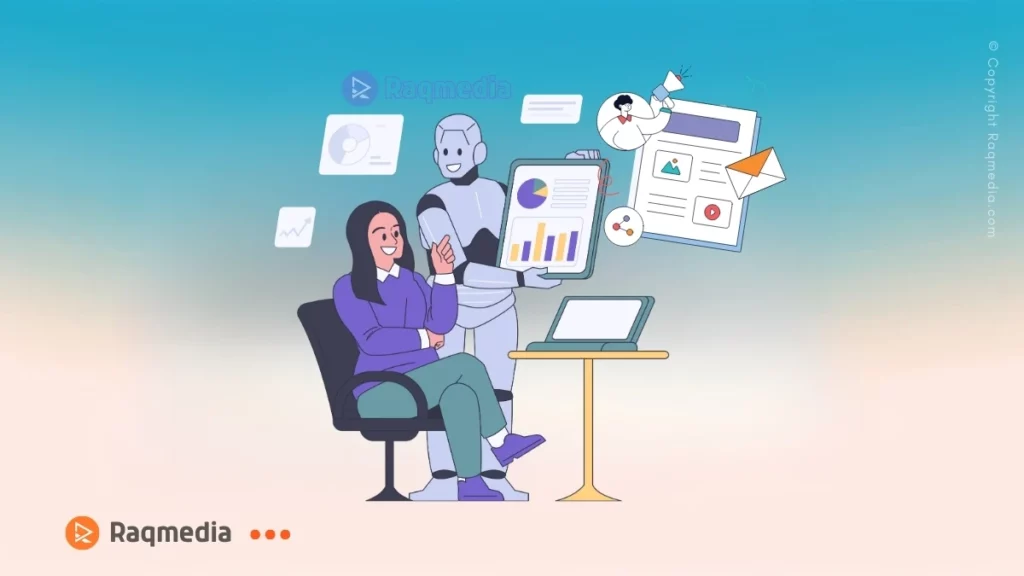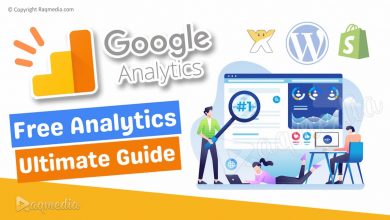In the fast-evolving landscape of digital marketing, one disruptive force stands out like a beacon of innovation: Artificial Intelligence (AI). As businesses navigate the intricacies of an increasingly digital world, AI emerges not merely as a tool but as a cornerstone in shaping future strategies. Explore the transformative impact of AI in shaping future digital marketing. Learn how to leverage this technology for strategic success.
The rise of AI signifies a pivotal shift from traditional marketing paradigms to dynamic, data-driven approaches that hold the potential for unprecedented efficiency and effectiveness. Integrating AI into marketing strategies is no longer just an option; it's an imperative for those seeking to thrive in a competitive market where personalization, predictive analytics, and automation reign supreme.
Table of Contents
- 1 The Impact of AI in Shaping Future Digital Marketing Strategies
- 2 Understanding AI in Digital Marketing
- 3 Enhancing Customer Experience with AI
- 4 AI-Powered Analytics for Marketing Success
- 5 Automating Marketing Tasks Through AI
- 6 Optimizing Content Strategy with AI
- 7 AI-Powered Advertising Strategies
- 8 Ethical Considerations in Using AI for Digital Marketing
- 9 Future Evolution of Digital Marketing
- 10 Key Takeaways from AI's Influence on Digital Marketing
- 11 FAQs:
- 11.1 Q1: How does AI enhance customer engagement in digital marketing?
- 11.2 Q2: What role does AI play in optimizing marketing analytics?
- 11.3 Q3: Can AI automate marketing tasks effectively?
- 11.4 Q4: Is leveraging AI algorithms essential for dynamic ad targeting?
- 11.5 Q5: How can businesses maintain ethical considerations while using AI for digital marketing?
The Impact of AI in Shaping Future Digital Marketing Strategies
Welcome to the realm where algorithms are ambassadors and data is king – a realm where AI's dominance transforms mere campaigns into calculated symphonies of engagement. Understanding AI in digital marketing isn't just about embracing new technology; it's about harnessing the power of intelligence to revolutionize how brands interact with their audience. By unlocking the capabilities of AI-driven insights, businesses can create personalized experiences that resonate deeply with each customer, fostering loyalty and propelling conversions beyond what was thought possible.

Through this exploration, we delve into the seven transformative ways AI is reshaping digital marketing strategies, offering a glimpse into the future where relevance meets responsiveness like never before. Embark on this enlightening journey with us as we uncover the profound impact AI has on crafting the marketing landscape of tomorrow – an enthralling narrative where innovation intertwines seamlessly with strategy, promising boundless possibilities for those daring enough to embrace its potential.
Understanding AI in Digital Marketing
In the realm of digital marketing, Artificial Intelligence (AI) is playing a pivotal role in reshaping traditional strategies into more intelligent and data-focused approaches. By harnessing the power of AI technologies like machine learning and natural language processing, marketers can delve deep into customer insights, behaviors, and preferences with unprecedented accuracy and speed. For instance, AI algorithms can analyze vast amounts of data to identify patterns that human marketers might have overlooked, enabling businesses to create hyper-personalized campaigns tailored to individual consumer needs.
To further illustrate this point, consider how AI enhances personalized marketing campaigns through predictive behavior modeling. With AI tools, companies can predict consumer actions based on historical data, enabling them to anticipate customer needs and deliver relevant content or product recommendations at the right moment. By leveraging AI-driven insights derived from past interactions, businesses can craft dynamic marketing strategies that adapt in real-time to changing market dynamics and consumer behaviors. This not only enhances engagement but also boosts conversion rates by offering customers exactly what they need before they even realize it themselves.
The landscape of digital marketing evolves rapidly with advancements in AI technology. Marketers should commit to ongoing education and exploration of AI tools, algorithms, and best practices to stay competitive. By staying informed about the latest developments in AI-driven strategies, marketers can adapt and optimize their approaches for enhanced results.
Moreover, AI empowers marketers to move beyond broad demographic segmentation towards creating highly targeted micro-segments based on intricate behavioral patterns. By understanding each customer's unique journey and preferences, brands can tailor their messaging with precision, leading to more authentic connections that foster long-term loyalty. Through the lens of AI-powered predictive analytics, digital marketers are not just reacting but proactively shaping strategies that resonate deeply with individuals on a one-to-one level, revolutionizing how brands engage with their audiences in today's hyper-competitive landscape.
Enhancing Customer Experience with AI
In the realm of digital marketing, enhancing customer experience is a top priority, and AI plays a pivotal role in achieving this objective. By leveraging chatbots and virtual assistants fueled by artificial intelligence, businesses can provide instant and round-the-clock customer support. These AI-powered entities not only respond to customer queries promptly but also have the capability to handle multiple conversations simultaneously, ensuring a seamless and efficient support system. This level of instantaneous assistance not only enhances customer satisfaction but also contributes significantly to bolstering brand reputation.
Moreover, AI-driven personalization strategies have revolutionized how businesses engage with their customers. Through advanced data analytics and predictive modeling, companies can deliver highly targeted content that resonates with individual preferences and behaviors. For instance, e-commerce platforms utilize AI algorithms to recommend products based on past purchases or browsing history, creating personalized shopping experiences that drive higher conversion rates. By tailoring recommendations to suit each customer's unique taste, businesses can foster stronger connections, increase customer engagement, and ultimately build long-term loyalty.
Overall, the incorporation of AI in enhancing customer experience propels digital marketing strategies into a realm of hyper-personalization and efficiency previously unimaginable. By utilizing chatbots for instant support and implementing personalized content delivery systems powered by AI algorithms, businesses can forge deeper relationships with consumers while streamlining their operations for maximum impact. The future of digital marketing undoubtedly lies in embracing these AI advancements to create memorable customer interactions that drive sales growth and brand advocacy.
AI-Powered Analytics for Marketing Success
In the realm of digital marketing, AI is increasingly becoming the cornerstone of success, particularly in the realm of analytics. By harnessing the power of artificial intelligence for data analytics, marketers can extract invaluable insights that drive informed decision-making and optimize strategies for enhanced performance.
Through AI-based algorithms, businesses can delve deep into consumer behavior patterns, market trends, and campaign performance metrics with unprecedented accuracy and efficiency. For instance, AI can analyze vast amounts of data in real-time to identify subtle shifts in consumer preferences or predict upcoming trends before they emerge, giving marketers a competitive edge in staying ahead of the curve.
One compelling aspect of leveraging AI for marketing analytics is its predictive capabilities. By utilizing sophisticated machine learning algorithms, AI systems can forecast consumer behavior based on historical data trends, enabling marketers to tailor their strategies proactively rather than reactively. For example, an e-commerce platform can use AI-powered analytics to anticipate which products a specific customer segment is likely to purchase next based on their browsing history and past purchases. This level of predictive insight allows companies to personalize their offerings effectively and deliver targeted campaigns that resonate with individual preferences.
As AI collects vast amounts of data for personalized marketing efforts, safeguarding customer information is paramount. Marketers must ensure compliance with data privacy regulations like GDPR and prioritize transparency in data collection, processing, and usage. Building trust through ethical data practices not only protects consumer privacy but also fosters strong relationships with customers based on integrity and respect.
Furthermore, AI plays a pivotal role in monitoring and evaluating campaign performance metrics in real-time. Marketers can track key performance indicators (KPIs) accurately through AI-driven analytics tools, allowing them to adapt strategies on-the-fly for optimal results. For instance, social media platforms utilize AI algorithms to analyze engagement metrics such as likes, shares, and comments to determine the effectiveness of ad campaigns instantly. This agile approach empowers marketers to make data-driven decisions swiftly and fine-tune their marketing efforts for maximum impact.
Automating Marketing Tasks Through AI
In the realm of digital marketing, one of the transformative impacts of AI lies in automating repetitive tasks that once consumed significant time and resources. By leveraging AI tools for tasks like email campaigns, social media scheduling, and lead nurturing, marketers can streamline their operations while enhancing efficiency. For instance, AI-powered email marketing platforms can automate personalized email sequences based on user behavior or preferences, ensuring relevant content reaches the right audience at optimal times. This automation not only accelerates the delivery process but also drives higher engagement rates by delivering content tailored to individual interests.
Moreover, social media scheduling tools empowered by AI algorithms enable marketers to plan and distribute content across various platforms efficiently. These tools analyze data patterns to determine peak engagement times, automatically scheduling posts for maximum impact. By automating these tasks through AI, marketers are liberated from manual labor, granting them more bandwidth to delve into strategic planning and creative endeavors that contribute significantly to developing compelling campaigns.
By entrusting mundane tasks to artificial intelligence systems, marketers unshackle themselves from monotonous routines and allow their cognitive capacities to focus on high-level strategies. Whether it's crafting innovative campaign concepts or refining brand messaging for better resonance with audiences, the freedom gained from automated processes empowers marketers to bring forth their best creative thinking. Automated lead nurturing processes use predictive analytics to score leads based on their likelihood of conversion, guiding marketers towards focusing efforts on prospects most likely to convert—a prime example of how AI augments marketing precision while facilitating strategic decision-making.
Optimizing Content Strategy with AI
In the ever-evolving landscape of digital marketing, AI algorithms have emerged as powerful tools in transforming content strategies. By harnessing the capabilities of artificial intelligence, marketers can streamline the process of content creation, optimization, and distribution across multiple channels. For instance, AI-powered platforms can analyze vast amounts of data to identify trending topics, tailor content to specific audience segments, and suggest optimal posting times for maximum engagement. This level of automation not only saves valuable time but also ensures that the content resonates with target audiences on a more personalized level.
Moreover, the impact of AI-generated content on SEO rankings and audience engagement cannot be understated. AI algorithms can fine-tune content to align with search engine requirements, boosting organic visibility and driving traffic to websites. Through natural language processing and sentiment analysis, AI tools can gauge audience preferences and sentiments, enabling marketers to craft compelling narratives that resonate with their target demographic. As a result, brands can deliver more relevant and engaging content that enhances customer experiences and builds brand loyalty.
One example of AI optimizing content strategy is through predictive analytics that forecast future trends in consumer behavior. By leveraging historical data and machine learning algorithms, marketers can anticipate upcoming shifts in audience interests or market demands. This foresight allows them to tailor their content strategies proactively, ensuring they stay ahead of competitors and maintain relevance in a dynamic digital landscape. Ultimately, the synergy between AI technologies and content strategy empowers marketers to create impactful storytelling that drives conversions and cultivates lasting relationships with customers.
AI-Powered Advertising Strategies
In the realm of digital marketing, AI is rapidly transforming how advertising strategies are crafted and executed. Through dynamic ad targeting capabilities driven by sophisticated AI algorithms, businesses can fine-tune their advertisements to reach the most relevant audiences with precision. Unlike traditional static ads, AI-powered dynamic ad targeting analyzes user behavior in real-time to deliver personalized content that resonates with individuals based on their preferences, browsing history, and online interactions. This level of customization heightens engagement rates and enhances the overall effectiveness of advertising campaigns.
One prominent application of AI in advertising is programmatic advertising, which leverages automated processes and real-time bidding to optimize ad placements across various digital platforms. By harnessing AI's analytical prowess, marketers can reach highly targeted audiences at scale without extensive manual intervention. For instance, programmatic advertising platforms use AI algorithms to assess user data instantaneously and adjust campaign parameters in milliseconds to maximize conversions. This agile approach ensures that marketing messages are delivered to the right audience segments at the optimal moment, resulting in higher conversion rates and improved return on investment.

The efficiency gains offered by AI-driven advertising strategies extend beyond mere cost-effectiveness; they empower marketers to engage consumers in a more personalized and compelling manner. Imagine an e-commerce platform utilizing AI to tailor product recommendations based on individual shopping behaviors or social media platforms delivering sponsored content that seamlessly integrates into users’ feeds based on their interests and demographic profiles. Such hyper-targeted approaches exemplify how AI not only streamlines advertising workflows but also elevates customer experiences by presenting relevant content that captures attention and drives action.
As brands continue to embrace AI-powered advertising strategies, they position themselves at the forefront of innovation in digital marketing. By embracing dynamic ad targeting tools supported by robust artificial intelligence algorithms, businesses can unlock new levels of creativity, relevance, and impact in their advertising endeavors. Through this strategic fusion of technology and consumer insights, brands can forge deeper connections with their target audiences while achieving tangible business outcomes that propel them ahead in today's competitive landscape.
Ethical Considerations in Using AI for Digital Marketing
As the realm of digital marketing increasingly relies on AI-powered strategies, navigating ethical considerations surrounding customer data usage has become paramount. Marketers must address the fine line between leveraging AI for personalized marketing and respecting consumer privacy. Transparency is key when utilizing AI algorithms to collect, analyze, and utilize data effectively. For instance, companies like Amazon have faced scrutiny over using customers' browsing history to personalize recommendations without clear disclosure, underscoring the need for transparent data practices.
Maintaining trust while harnessing AI capabilities in marketing involves implementing robust data protection measures. Building upon the example of GDPR compliance in Europe, where stringent regulations govern how businesses handle personal information, companies globally are realizing the importance of earning and upholding consumer trust through responsible data handling. By ensuring opt-in mechanisms for personalized marketing and providing clear explanations of how AI processes consumer data ethically, brands can align themselves with best practices and foster long-term relationships based on transparency.
While AI streamlines processes and enhances efficiency in digital marketing, human creativity and intuition remain irreplaceable assets. Encouraging collaboration between AI technologies and human marketers can lead to innovative solutions that blend machine capabilities with human ingenuity. By leveraging the strengths of both humans and machines, businesses can create dynamic strategies that resonate with audiences on a deeper level while maximizing ROI.
Striking a balance between innovative marketing tactics powered by AI and ethical considerations requires a proactive approach from businesses. In light of sophisticated AI technologies that can glean insights from vast amounts of customer data, brands need to emphasize their commitment to ethical practices. Educating consumers about how their data is used to enhance their experience rather than intrude upon their privacy can pave the way for a more harmonious relationship between marketers leveraging AI tools and the audience they seek to engage with. Ultimately, by prioritizing ethics alongside technological advancements, companies can ensure sustainable growth while fostering loyalty and goodwill among consumers.
Future Evolution of Digital Marketing
As we witness the evolution of digital marketing with AI at its core, it becomes evident that the future lies in data-driven decision-making and hyper-personalization. By harnessing the power of AI-driven analytics, businesses can gain valuable insights into consumer behavior patterns, enabling them to anticipate trends and adjust their strategies proactively. Additionally, AI's role in content optimization not only boosts SEO rankings but also ensures that brands deliver relevant and engaging content across various platforms effectively. From dynamic ad targeting to chatbot interactions, every touchpoint is an opportunity for AI to elevate customer engagement and drive conversions.
In this dynamic landscape where technology continues to shape the way we interact with brands online, ethical considerations remain paramount. Transparency in data usage and maintaining consumer trust are critical aspects when deploying AI in marketing efforts. Striking a balance between personalization and privacy is key to fostering long-term relationships with customers who value authenticity. As businesses navigate this intricate terrain, understanding the ethical implications of utilizing AI in digital marketing will be essential for building sustainable strategies that resonate with audiences while respecting their privacy concerns.
Key Takeaways from AI's Influence on Digital Marketing
As we conclude our exploration into the impact of AI in shaping future digital marketing strategies, it's evident that artificial intelligence has become an indispensable tool for marketers and business owners alike. By seamlessly integrating AI into marketing campaigns, companies can unlock a realm of possibilities that were once unimaginable. From personalized customer experiences to data-driven insights and automated tasks, AI revolutionizes how brands connect with their target audiences in a dynamic digital landscape.
In this rapidly evolving environment, staying ahead requires embracing innovation. As AI continues to redefine the boundaries of traditional marketing practices, those who adapt will thrive. The strategic adoption of AI-powered tools ensures efficiency, precision, and relevance in engaging consumers. As we navigate this exciting era where technology intersects with creativity, the potential for growth and success is limitless for those willing to seize the opportunities that AI presents.
FAQs:
Q1: How does AI enhance customer engagement in digital marketing?
AI enhances customer engagement by enabling personalized interactions through data analysis to deliver targeted content that resonates with individual preferences.
Q2: What role does AI play in optimizing marketing analytics?
AI plays a crucial role in analyzing large datasets swiftly to derive valuable insights on consumer behaviors and market trends critical for informed decision-making.*
Q3: Can AI automate marketing tasks effectively?
Yes, AI automates repetitive tasks like email campaigns and social media scheduling efficiently, freeing up marketers' time to focus on strategy development.
Q4: Is leveraging AI algorithms essential for dynamic ad targeting?
Leveraging AI algorithms is vital for dynamic ad targeting capabilities as they allow marketers to reach highly targeted audiences at scale with minimal human intervention.
Q5: How can businesses maintain ethical considerations while using AI for digital marketing?
Businesses can uphold ethics by being transparent about data usage for personalized marketing efforts and implementing strict privacy policies to build trust with customers.
By following these tips, marketers can harness the transformative potential of AI to revolutionize their digital marketing strategies effectively while maintaining ethical standards and customer-centric approaches that drive long-term success in the ever-evolving digital landscape.










🚀🧠 Dive into the future of digital marketing with AI at Raqmedia! 🌟📊Explore innovative strategies and discover how AI is reshaping the digital landscape for strategic success. 🌐 Explore more at: The Impact of AI in Shaping Future Digital Marketing Strategies:
.
https://www.raqmedia.com/impact-of-ai-in-shaping-future-digital-marketing
.
#DigitalMarketing #AIInnovation #DataAnalytics #CustomerEngagement #Personalization #FutureStrategies #EthicalAI #MarketingAutomation